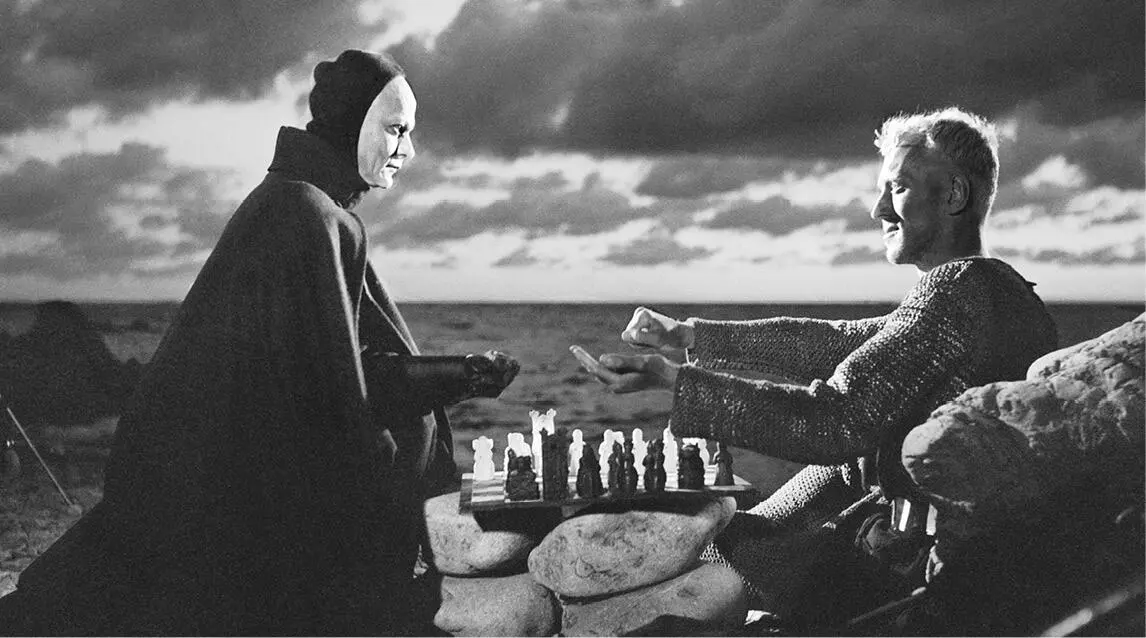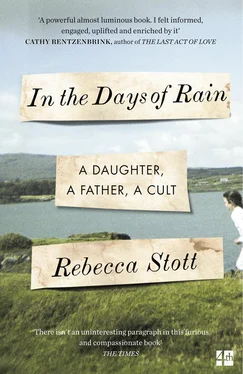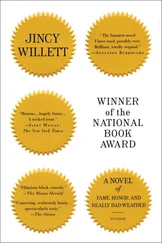He had a set of dentures that had replaced some of his back teeth, and sometimes he’d take them out when he was speaking fast or reciting poetry. He’d place them on the table between us. Sometimes he’d do this in restaurants or pubs. He’d belch, too – at home and in public. His belches were loud, elongated, and reverberated like a long rumble of thunder. He belched, I think, as an act of defiance against all forms of gentility and because it made us laugh. My brothers – and then my son – competed to imitate those sounds. It became a tribal thing.
Through that final winter, increasingly lame, bilious and irascible, his pancreas riddled with the still-undetected cancer, my father – the great limping bulk of him – walked the bank of the River Lark for hours every day, following the line of the river across the fens listening to Joyce’s Ulysses on his headphones for the seventh time. He and my stepmother had planted hundreds of bulbs – fritillaries and parrot tulips – on the path up to the Mill door and in rows on the riverbank. By February they were pushing up shoots.
On Valentine’s Day in a hospital in Bury St Edmunds, doctors had finally used the word ‘cancer’ at the end of several weeks of euphemisms that had begun with ‘inflammation’ and then progressed to ‘blockage’, then ‘lump’, and then finally ‘tumour’.
‘Seems they manage bad news by drip-feeding it here,’ my father said. ‘It’s exactly three centimetres by six centimetres,’ he added, indulging his obsession for numbers, tracing the edges of the shadow on the ultrasound scan printout. ‘They don’t know how long I have. But they’ve given me a counsellor. That’s not good, is it?’
He’d have to finish his memoir now, he said, when he’d been allowed to go home and when he’d stopped swearing, raving, and thumping walls and tables with his fist. He’d begun to think about what it might mean to put his affairs in order. When he told me he was going to need my help to finish that book of his, my heart sank.
He’d started writing it eight years earlier, shortly before meeting my stepmother. He’d called it ‘The Iron Room’, after the corrugated-iron Meeting Room where he and his parents and siblings had worshipped five or six times a week when he was growing up. For the first three years he’d talked about his memoir all the time. Every spare hour he took away from his paid work as a freelance copyeditor he’d be at it: ten steps back into rewriting; one step forward into new writing. He’d sent me scores of drafts, each only slightly different from the last. I came to dread the sight of his emails in my inbox.
‘I can’t see the wood for the trees any more,’ I pleaded. ‘Let me read it when it’s finished. Then I’d be a fresh pair of eyes.’
I was relieved when the emails stopped coming, when he’d been distracted by the Mill, the garden, the broken plough, and the question of where to put the silver birches.
It was when he hit the 1960s, he said, that he’d run into trouble. He hadn’t been able to get any further. I did the calculations. That was a shortfall of forty-nine years. How long would that take him – or me – to write?
‘The Nazi decade,’ he added, as if it were an explanation, and I nodded, telling myself the morphine was addling his head. Everything after 1960 had turned into a thicket , he whispered, through tears and expletives, whilst uncorking what was probably the third bottle of wine that afternoon. But he was going to finish it, he said. He had to. He wasn’t going to let Death win that sodding chess game. He thumped his huge fist down on the arm of his chair again. Not any time soon .
He gestured at the television, a forty-two-inch flatscreen, the only piece of equipment in the cool damp interior of the curved Mill walls, on which he’d paused a scene from Ingmar Bergman’s The Seventh Seal . Within the black-and-white frame two men dressed in medieval clothes sat playing chess against a wild sea.

Det sjunde inseglet / The Seventh Seal © 1957 AB Svensk Filmindustri. Still photographer: Louis Huch
‘So long as the knight keeps playing the game of chess,’ my father said, ‘Death can’t take him.’
He was damn well going to watch all fifty-eight of Bergman’s films again now, he declared.
Of all the things I might have guessed my father might have wanted to do with his remaining days, watching Ingmar Bergman films wasn’t one of them. I could only remember seven films that Bergman had directed. My father had made me watch them when I was sixteen, on afternoons when he persuaded me to skip school during my O-Levels: Wild Strawberries , Autumn Sonata , Cries and Whispers , The Seventh Seal , Winter Light , The Silence and Through a Glass Darkly . He’d buy red wine, huge loaves of still-warm bread and slabs of ham, and open a jar of his favourite wholegrain English mustard. We’d watch those films in his dusty, post-divorce flat, sitting on the floor amid piles of unpaid bills and documents and scatterings of poems. I’d go back to school – or to my mother’s house – slightly drunk, my head spinning.
I started a list on the day he showed me Death playing chess on the TV screen. Ingmar Bergman: 58 , I wrote at the top of the page in my notebook, thinking I’d order them online. I’d forgotten that my father had more than forty of them in a cupboard in the Mill, that he’d been collecting them since he’d stolen into the back row of a cinema to see Wild Strawberries at the age of eighteen.
Fifty-eight. How many films could you watch in a day?
My younger brother, travelling across New Zealand on sabbatical from work, flew home and moved into the Mill. I stayed as often as I could, driving up from Cambridge every other day, leaving notes for my ex-husband and babysitters, managing a job and publishers from a phone and an internet connection that rarely worked. My sister flew over from France. My two other brothers came as often as their jobs and young families allowed them. The five of us gathered around, steeled ourselves. My stepmother ordered in food and more cases of wine and turned the thermostat dial to Constant.
In the crypt light of the Mill tower, through late February and March, we watched Bergman films together, interspersed with long hours of cricket – the World Cup had just started. We played Mozart, drank wine, cooked, and ate together at a table that seated fifteen, only a few feet from my father’s reclining chair, which was now permanently horizontal. It snowed. My son and I drove across fen dirt tracks in the dark to fetch foil boxes of Gressingham duck prepared for my father by the cooks at the White Pheasant pub at Fordham, but though he wanted to eat he had no appetite. He worked away at his memoir for several hours a day for the first week, propped up on pillows, but then, once the Macmillan nurse had increased his daily doses of morphine, he was too tired to write.
Then there was the day he told me, tears in his eyes, that he didn’t think he could finish his memoir after all. He’d gone back into the thicket, but he couldn’t face it: the muddle, the cruelty, the madness of it all . And even if he could describe those years, he whispered, as if someone might be listening in, he’d never be able to close the great gap in time, get from 1960 to now, to this .
‘Shandy’s dilemma,’ I said, and he smiled darkly. For decades he’d been persuading me to read his favourite books. Many had become my household gods now too. A webwork of in-jokes and literary references had grown up between us. We’d both read Lawrence Sterne’s mad fictional eighteenth-century memoir The Life and Opinions of Tristram Shandy, Gentleman . But now that he had only weeks to live, the similarities between Tristram Shandy and my father’s own unfinished fictional memoir struck me as both tragic and ridiculous.
Читать дальше













